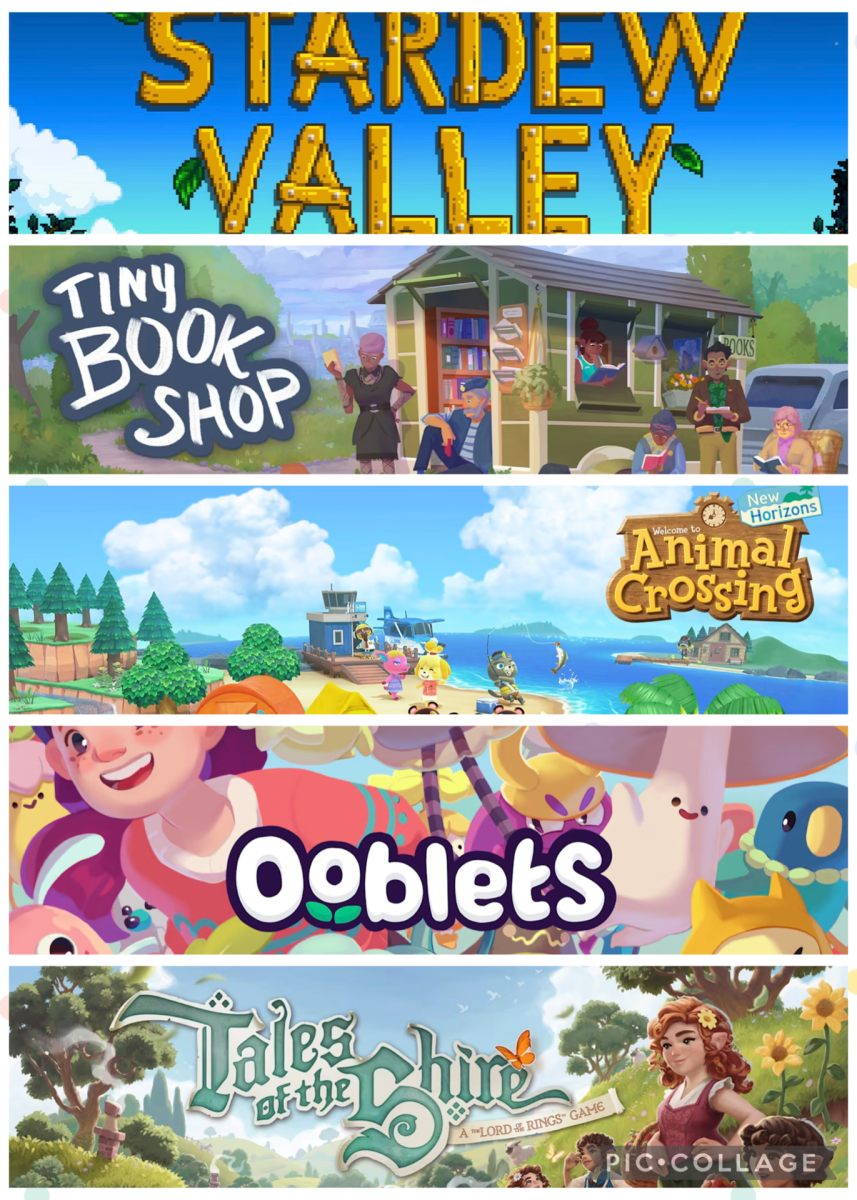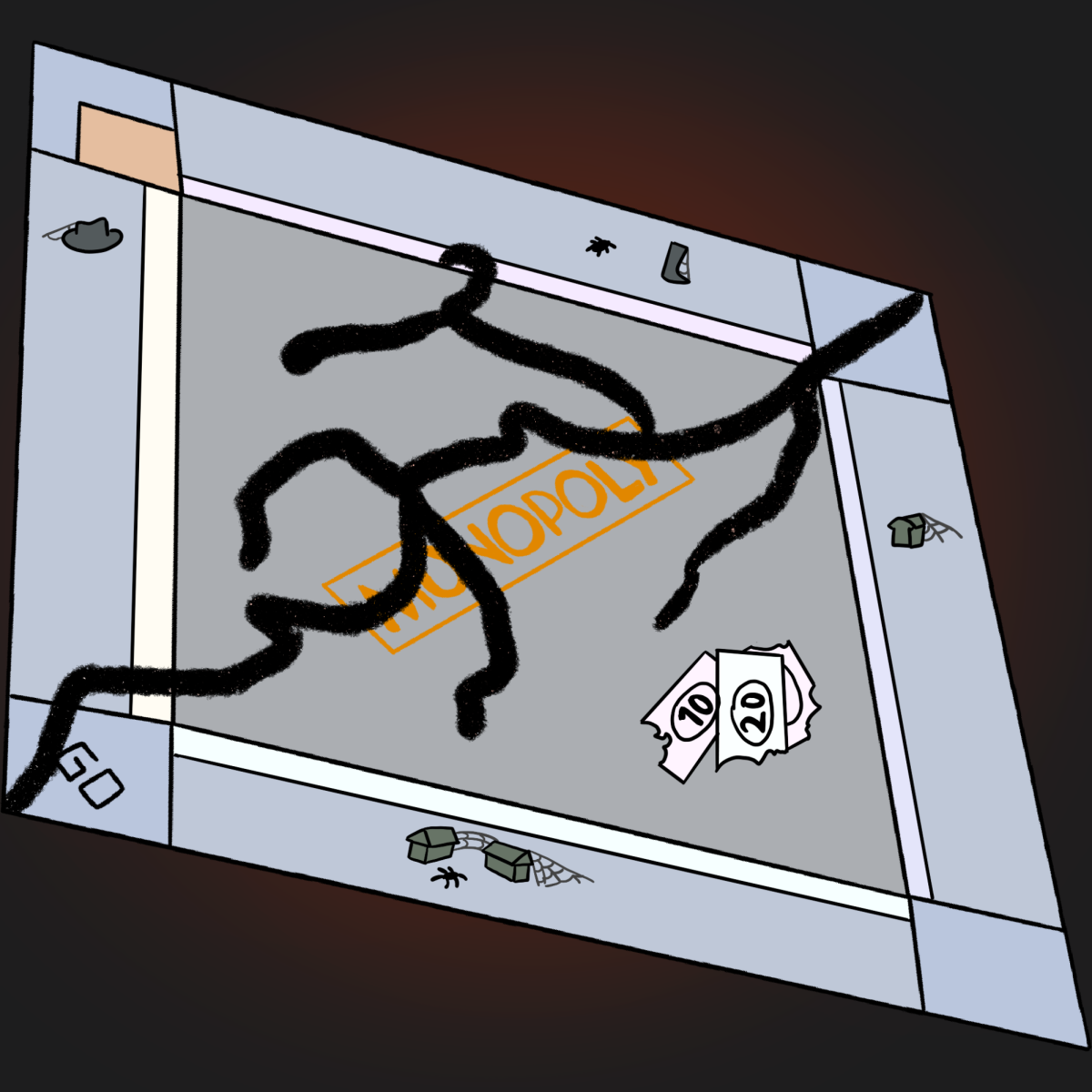Released on April 19, Taylor Swift’s highly-anticipated 11th studio album “The Tortured Poets Department” delves into the raw reality of Swift’s broken relationships, weaving through the realms of poetic pop. Many songs bear resemblance to those featured on previous albums like “Folklore” and “Midnights.” However, this album requires a few listens to fully unravel its depths and appreciate its nuances.
Fortnight (ft. Post Malone)
“Fortnight” (ft. Post Malone) kicks off the album with a mesmerizing, slow-paced pop ballad, enveloping listeners in its dreamy atmosphere and gentle melody. Post Malone’s harmonization with Swift’s vocals adds depth to the track, creating a richer and more layered sound. However, his limited presence left some listeners wanting more. The delicate interplay of ethereal harmonies captures a sense of longing and introspection that resonates with the music, drawing listeners into its emotional depth. The song’s calm atmosphere serves as a soothing introduction to the album. Fans particularly resonate with the lyrics, “I love you, it’s ruining my life,” which effectively captures the bittersweet essence of love’s complexities. This song stands out as a captivating slow burn, setting the stage for the emotional journey that unfolds throughout the rest of the album.
My Boy Only Breaks His Favorite Toys
“My Boy Only Breaks His Favorite Toys” echoes a melodramatic production style. The song employs a distressing metaphor, where Swift likens herself to a favorite toy that is ultimately discarded and forgotten. The lyrics “I’m queen of sand castles he destroys,” employs vivid imagery that immediately evokes a sense of vulnerability and fragility. This likens the singers efforts in the relationship to building sandcastles — temporary and easily destroyed — exploring the cycle where one is cherished but then subjected to devaluation and neglect. Themes of denial and toxicity are infused throughout the track, portraying the struggles of clinging onto a broken relationship. Despite its mournful undertones, the song’s chorus stands out as a strong point, offering a captivating and uplifting melody amidst the emotional turmoil.
Down Bad
“Down Bad” explores the devastating concept of being love bombed and subsequently abandoned, capturing a sense of heartbreak and disillusionment. Despite its melancholic theme, the song maintains a slightly upbeat tempo with gentle instrumentation that echoes the album’s overall vibe of melancholy with moments of hopefulness. The pre-chorus is a standout moment, particularly with the line “For a moment, I was heavenstruck.” Swift’s serene vocals and the tranquil harmonization create a mesmerizing and ethereal atmosphere that captivates the listener. The imagery behind being “heavenstruck” conjures a feeling of divine euphoria and enchantment, which sets the stage for the emotional climax of the chorus, where the mood shifts dramatically and dives into the lines “Now I’m down bad, crying’ at the gym (Cryin’ at the gym) / Everything comes out teenage petulance.” Its devastating lyricism strikes a chord, offering a relatable reflection of the highs and lows of relationships.
So Long, London
In a reflection of her past six-year relationship with British actor Joe Alywn, “So Long, London” delves deep into the history of their love. This contrasts sharply with the upbeat and affectionate tone of “London Boy” from her previous album, “Lover.” While “London Boy” expresses her deep love for Alywn and paints a vibrant picture of their relationship, “So Long, London” offers a glimpse into the harsh realities of their affair. The song emerges as one of the album’s most awaited pieces, captivating listeners with its emotionally charged delivery. Swift’s voice trembles with raw emotion, drawing listeners into her heartbreak. Her angelic vocals seamlessly intertwine with the subdued rhythms of the song, resulting in a track that is beautifully agonizing. The intro music, reminiscent of wedding or London bells, sets a somber tone, enhancing the song’s melancholic atmosphere. Renowned for her lyrical prowess, Swift delivers some of her best writing in this track, with several references to marriage and touching lines like “You swore that you loved me but where were the clues? / I died on the altar waitin’ for the proof.”
But Daddy I Love Him
“But Daddy I Love Him” expresses Swift’s defiance against constant scrutiny of her personal life, comparing public criticism to overbearing parental control. She uses poetic language to highlight how fans and the media elevate her only to condemn her when she makes choices they disapprove of. The song exudes a dreamy ambiance as Swift channels her raw emotions, conjuring the imagery of carefree barefoot runs through a sunlit field, all while declaring her love. Its empowering essence crescendos during the chorus, particularly with the impactful lyric “Now I’m runnin’ with my dress unbuttoned / Screamin,’ But, Daddy, I love him,” igniting a surge of intense emotion and defiance. The title also references a line from “The Little Mermaid” where Ariel defies her father to be with her love, adding depth to Swift’s critique of relationships.
Fresh Out the Slammer
“Fresh Out the Slammer” is a heartfelt anthem of liberation, where Swift’s vocals glide effortlessly over serene melodies. The song chronicles her journey from restraint to emancipation, using the word “slammer” to symbolize a prison that she’s finally escaped. In this case, it closely resembles a suffocating situation. As the song unfolds, delicate instrumentation and airy harmonies create a sense of weightlessness, echoing Swift’s escape from confinement. The chorus serves as a triumphant declaration of her return, as she runs back home to the one that has always been her beacon of light. The production aligns with the overall aesthetic of the album, presenting a melody that corresponds with the theme of newfound freedom and fresh starts.
Florida!!! (ft. Florence and the Machine)
“Florida!!!” featuring Florence and the Machine marks a departure from the album’s usual tone, embodying Florence’s signature style. It’s a vibrant and lively track, offering a wakeful contrast to the album’s overall mood. Going into themes of feeling trapped by life’s choices and facing harsh consequences or judgment, the song captures the desire for escape. With its exhilarating and dramatic beat, the production stands out as a highlight. Each drum beat spelling out F-L-O-R-I-D-A adds a playful and rhythmic element to the song. Swift’s vocals harmoniously merge with Florence’s, striking a perfect balance between their voices. The lighthearted and whimsical lyrics of the track contrast with more serious themes found in other songs on the album. Lyrics on this track may fall short, such as “My friends all smell like weed or little babies.”
I Can Do It With a Broken Heart
“I Can Do It With a Broken Heart” chronicles Swift’s emotional journey of touring after a breakup, where she candidly admits to pushing through performances despite the pain of heartbreak. This sentiment is encapsulated in the pre chorus with the line, “They said, Babe, you gotta fake it ‘til you make it’ and I did.” The song features a distinctive “1234” count before the chorus, mimicking what Swift hears through her in-ear monitors during performances, adding a layer of authenticity to the narrative. The outro stands out with its blend of sarcasm and devastation, as Swift delivers hurtful lyrics with apparent happiness: “And I’m good / ‘Cause I’m miserable (Haha) / And nobody even knows.” This juxtaposition captures Swift’s resilience in the face of personal struggles and the challenges of fame during her prime years. It is lauded as one of the most raw and authentic tracks on the album.
After releasing “The Tortured Poets Department” at midnight, Swift surprised fans with a double album titled “The Tortured Poets Department: The Anthology.” Taylor Swift’s surprise double album emerged from her abundant creative overflow. With 15 additional tracks accompanying the initial 16, Swift sought to delve deeper into the emotional journey of her past. This album adds an extra layer of exploration and expansion upon the narratives introduced in the original album. Reflecting on themes of societal expectations and the complexities of relationships, the second album invites listeners into Swift’s introspective world.
“The Tortured Poets Department” stands as one of Swift’s most authentic albums, traversing into themes of heartbreak and loss. With several tracks carrying a melancholic tone, the album offers a poignant exploration of personal struggles. At first, most songs sounded sonically cohesive and heavily lyrical. However, after a few listens, tracks on “The Tortured Poets Department” reveal a profound coherence that allows listeners to appreciate the intricacies and production styles, despite some repetition. Swift’s immensely heartbreaking 31 tracks of tortured poetry define her as a true artist. Each song feels like an intimate excerpt from her diary, penned with raw honesty and vulnerability. As the album unfolds, it becomes a moving journey through Swift’s innermost thoughts and emotions.







